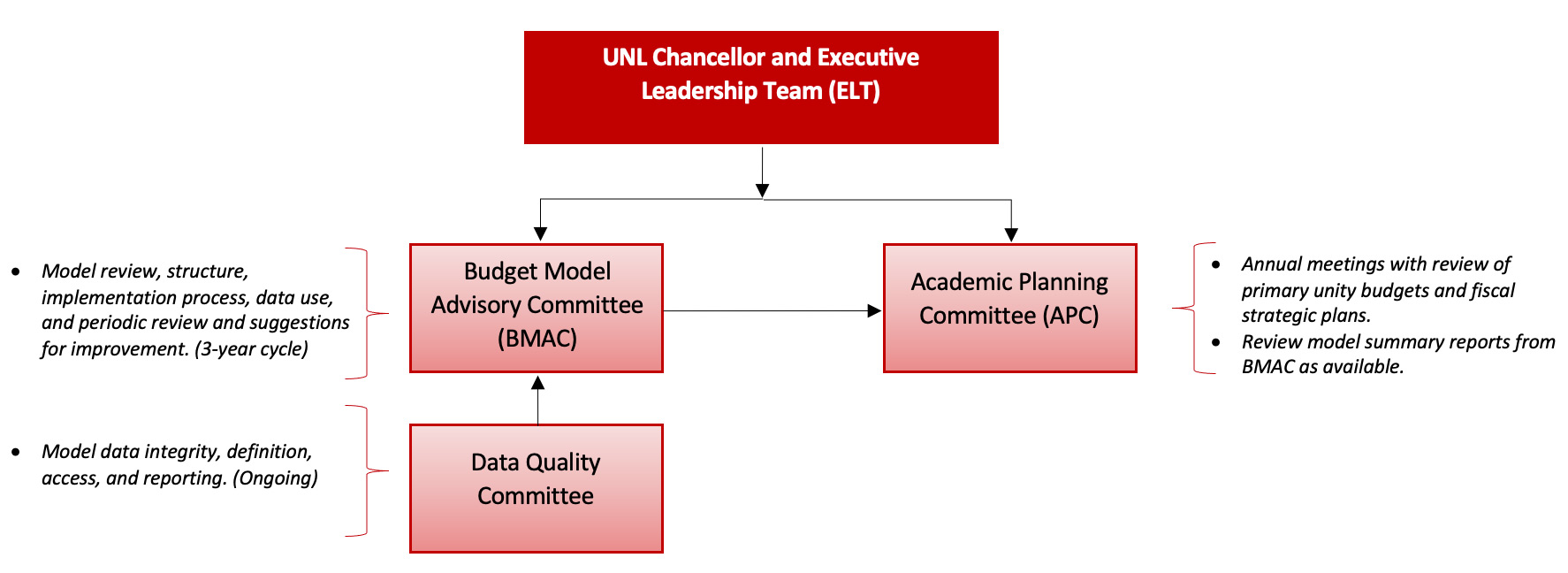Established in Fall of 2021, the Budget Model Advisory Committee (BMAC) serves as the primary advisory committee to the Chancellor and Executive Leadership Team (ELT) regarding UNL’s budget model redesign. With model reviews planned for every 3-4 years, the BMAC will review the structure and implementation of the budget model, assess data underlying the budget model, and make recommendations for further enhancements and improvements to the Chancellor and the ELT. The BMAC will convene at least annually.
The BMAC composition and inaugural membership includes:
- Co-chairs, Vice Chancellor for Business & Finance and the former Faculty Advisor to the Chancellor for Budget Model Implementation (FACBMI)
- Faculty (nominated by Senate, appointed by Chancellor and includes 1 APC representative and 1 Graduate Council representative, 3-year rotating appointments)
- Anthony Bushard, Terry Stentz, Kelli Kopocis, Elizabeth Theiss-Morse (APC), Jennifer Clarke (Grad Council)
- Deans (3, 3-year rotating appointments)
- Executive Vice Chancellor
- CABO members (2, 3-year rotating appointments)
- University Budget office
- VC Area members
Aligned with the cycle for the budget model review, the BMAC will:
- Assess the development of the model relative to N2025 strategic goals and its implementation in the short, mid, and long term.
- Maintain oversight of the budget model methodology and integrity.
- Perform a complete review of the Model every 3-4 years and recommend changes as necessary to ensure that the model is serving university strategic priorities.
- Make recommendations for necessary modifications to the model in subsequent iterations.
- Consult and seek input on Model changes from the Academic Planning Committee.
- In collaboration with requisite university financial offices, review results of zero-based budget analyses of primary and support unit operations on a three-year rotating basis.
- Review reports of budgeted revenues and expenses to actual performance.
- In collaboration with requisite university financial offices, review primary and support unit budgets, strategic objectives, service level demands, and workforce plans.
- Advise on Cost Pool charges to primary units based on finalized support unit budgets.
- Understand and assess budgetary trends (e.g., tuition rates, state appropriations allocations) that may affect the overall composition of the university budget and its impact on the Model.
